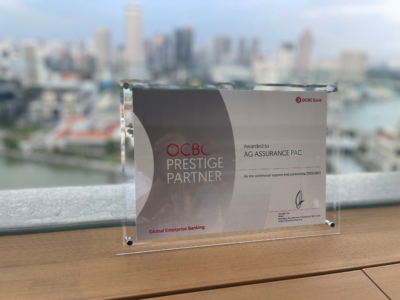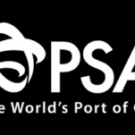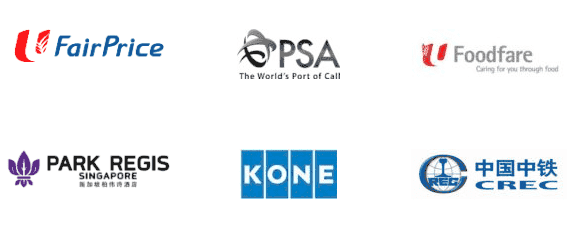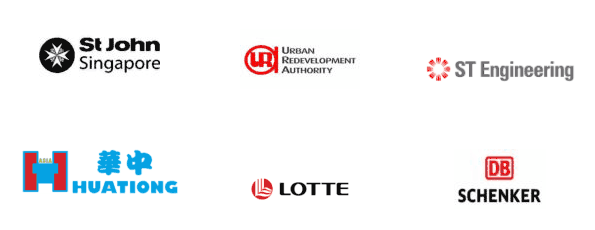Globally, high-net-worth individuals are strategically structuring their fortunes, directly fueling the rapid rise of the family offices model. Singapore, in particular, has solidified its position as the preferred global hub for these entities, owing to its status as a stable political environment, a diverse economy, and highly attractive tax policies.
For those dedicated to planning their long-term wealth and legacy, mastering the family office model is imperative. This strategic understanding is the foundation for defining its critical role in managing, preserving, and scaling multi-generational wealth.
What is a Family Office?
A family office is a private wealth management entity established to manage the financial, legal, and personal affairs of a single wealthy family or a group of families. Unlike traditional private banks, a family office acts as a dedicated central command unit, providing a personalised and integrated suite of services. The goal is to preserve and grow the family’s capital across generations while managing complex administrative and personal matters.
The services family offices typically offer are comprehensive, which include:
- Investment Management: Developing and executing investment strategies across various asset classes.
- Tax and Legal Planning: Structuring assets for tax efficiency and ensuring global compliance.
- Estate and Succession Planning: Providing guidance on managing wills, trusts, and intergenerational wealth transfer.
- Philanthropy: Supporting the family with organising and administering charitable giving and impact investing.
- Concierge Services: Managing all non-financial aspects, such as essential secretarial work, assisting with children’s education, coordinating travel logistics, and handling various household or private arrangements.
What is the Difference Between Single-Family Offices and Multi-Family Offices?
A crucial strategic decision determines how your wealth will be governed: the choice between the two primary operating models.
- Single-Family Office (SFO): An SFO is established, funded, and operated solely by and for one family only. This structure, which is not regulated by the Securities and Futures Act (SFA), offers maximum control, privacy, and customisation.
- Multi-Family Office (MFO): An MFO, conversely, is regulated under the SFA and operates as a shared service model, managing the affairs of several unrelated families. Since it is serving multiple families, this arrangement is often more affordable than establishing a dedicated family office. However, a key trade-off is that an individual family maintains less control over the governance and operations of the shared provider.
What Makes Singapore a Top Destination for Establishing Family Offices
It is clear why Singapore is viewed as a top destination for setting up a family office: its current position is rooted in decades of strategic planning and a deep commitment to building a diverse financial ecosystem.
1. Politically Stable and Well-Regulated Economy
Singapore is internationally renowned for its political stability, a factor that has attracted diverse global stakeholders and businesses. This is substantiated by its ranking as first in the World Intellectual Property Organization’s Global Innovation Index 2024 for political and operational stability.
Furthermore, Singapore maintains a reputation for exceptional governance, as evidenced by its ranking as the third least corrupt country in the world, according to the 2024 Transparency International Corruption Perceptions Index (TI-CPI). Meanwhile, its strong economy is highlighted by a GDP per capita reaching S$113,779 in 2023, positioning the nation as the top in Asia at that time.
This stability and transparency are indispensable for high-net-worth individuals, as they provide a secure environment for long-term wealth preservation and management. This stability, coupled with regulatory oversight, fosters deep investor confidence in the jurisdiction.
2. Attractive Tax Incentives
A major draw for family offices is the nation’s list of tax exemption schemes, which are specifically designed to attract fund management activities. These schemes enable most investment gains managed through the family office to be exempt from tax, provided that specific eligibility criteria set by the Monetary Authority of Singapore (MAS) are met. Key schemes include:
- Section 13O (formerly 13R): This scheme offers tax exemptions for Singapore-resident funds, typically utilised by smaller family offices or those just establishing themselves. It promotes local economic activity by requiring the fund to be managed by a Singapore-based fund manager.
- Section 13U (formerly 13X): Catering to larger institutional investors and ultra-high-net-worth individuals, Section 13U offers an enhanced tax exemption for non-resident funds. It is designed to attract substantial capital and requires the fund to be managed by a Singapore fund management company.
- Section 13D: It offers tax exemptions to non-resident funds managed by Singapore-based fund managers. Crucially, income derived from pre-defined Designated Investments (DI) is exempt from tax, provided the fund satisfies all requisite conditions.
- Philanthropy Tax Incentive Scheme (PTIS): This scheme specifically encourages philanthropic activities undertaken overseas through Singaporean entities. Under PTIS, family offices can receive a 100% tax deduction for overseas donations for five years, capped at 40% of the donor’s statutory income. Overseas donations refer to cash gifts made to charitable or benevolent causes whose primary objective is to benefit people, events, or objects outside of Singapore.
3. Singapore’s Pro-Business Tax Environment
This favourable tax environment strategically supports the growth and reinvestment goals of family offices, aiding in the smooth transfer of intergenerational wealth.
- Competitive Corporate Tax: The corporate tax rate is low and competitive, currently offering a flat rate of 17%. This low rate can be advantageous for entities managing operating businesses and investment structures because it helps maximise the amount of retained earnings that can be reinvested into the family’s portfolio or business.
- Wealth Preservation Advantages: Singapore has no capital gains tax (except for profits from trading properties) and no estate duty for deaths that occurred on or after 15 February 2008. This, in turn, protects the principal value of assets upon disposal or intergenerational transfer, ensuring the full legacy passes to heirs without significant erosion from government levies.
- Extensive DTA Network: The country maintains Double Taxation Avoidance Agreements (DTAs) with over 90 jurisdictions, covering tax residents of Singapore and their respective DTA partners. This comprehensive DTA network minimises tax leakage on cross-border investments, directly supporting tax efficiency for international families.
4. A Gateway to Global and Asian Markets
Family offices gain a strategic advantage by leveraging Singapore’s unique position at the heart of Asia, which grants direct, unfettered access to major economic powerhouses like China, India, and the broader Southeast Asian region. Its world-class Changi Airport further fortifies this unmatched connectivity, facilitating swift business operations with over 100 airlines serving around 170 destinations across nearly 50 countries. This positions Singapore as the essential hub for global investment and seamless business operations.
5. Secure and Transparent Financial Environment
Singapore’s robust legal and regulatory framework represents the pinnacle of global financial governance, consistently ranking first in the Economist Intelligence Unit’s (EIU) Business Environment Rankings. The jurisdiction is underpinned by stringent investor protection laws, the strict Personal Data Protection Act (PDPA), and rigorous anti-money laundering safeguards. This unwavering commitment to security and transparency categorically assures wealthy families that their assets and data are managed within a trustworthy, ethical, and dependable jurisdiction.
6. Access to Skilled Professionals
Singapore is home to a pool of well-educated and experienced professionals, including accounting service providers, tax advisors, legal consultants, and investment managers. With a number of executive talent, along with the presence of major global financial institutions, SFOs and MFOs have access to the support necessary to manage complex global investments.
How a Family Office Supports Wealth and Legacy Planning

By bringing tax planning, legal structuring, and investment management under a single roof, a family office ensures that all decisions are aligned with the family’s long-term objectives and values to prepare the next generation for succession. It is instrumental in:
- Succession Planning: Facilitating the smooth, orderly, and tax-efficient transfer of wealth to the next generation.
- Risk Management: Identifying and mitigating financial, legal, and operational risks across the entire family portfolio.
- Intergenerational Communication: Establishing formal governance structures to educate and involve succeeding generations in wealth management and philanthropic efforts, thereby preserving the family’s legacy.
The Next Step for Your Financial Management
Setting up a family office in Singapore is a strategic move that provides stability, tax efficiency, and access to growth markets. The combination of the country’s political security and its pro-business environment makes it the preferred choice for global wealth management.
AG, a trusted accounting company in Singapore and an OCBC Prestige Partner, offers expert company incorporation services and comprehensive ongoing accounting services. We provide structured support for the seamless setup of your fund vehicle, assisting with the complex application and compliance processes required to establish your family office.
Let AG help you achieve a stress-free setup and reinforce your business’s integrity and long-term value.
For more insights into company incorporation, check out how to streamline your business incorporation in Singapore and the checklist to follow after incorporation.













